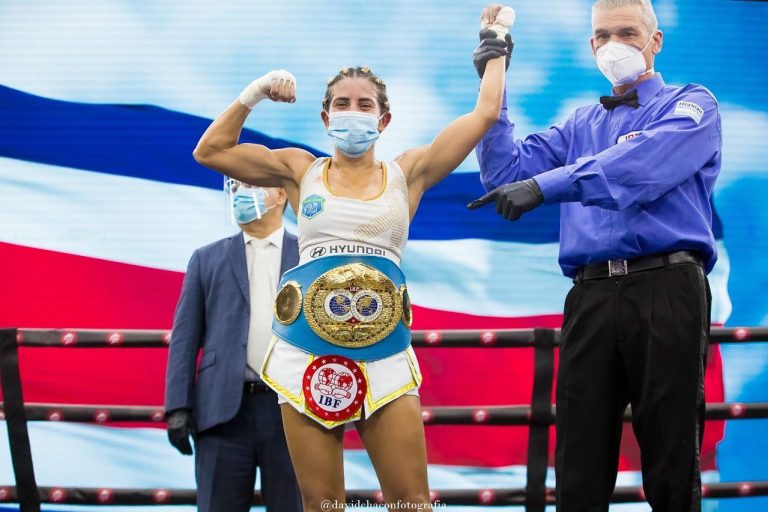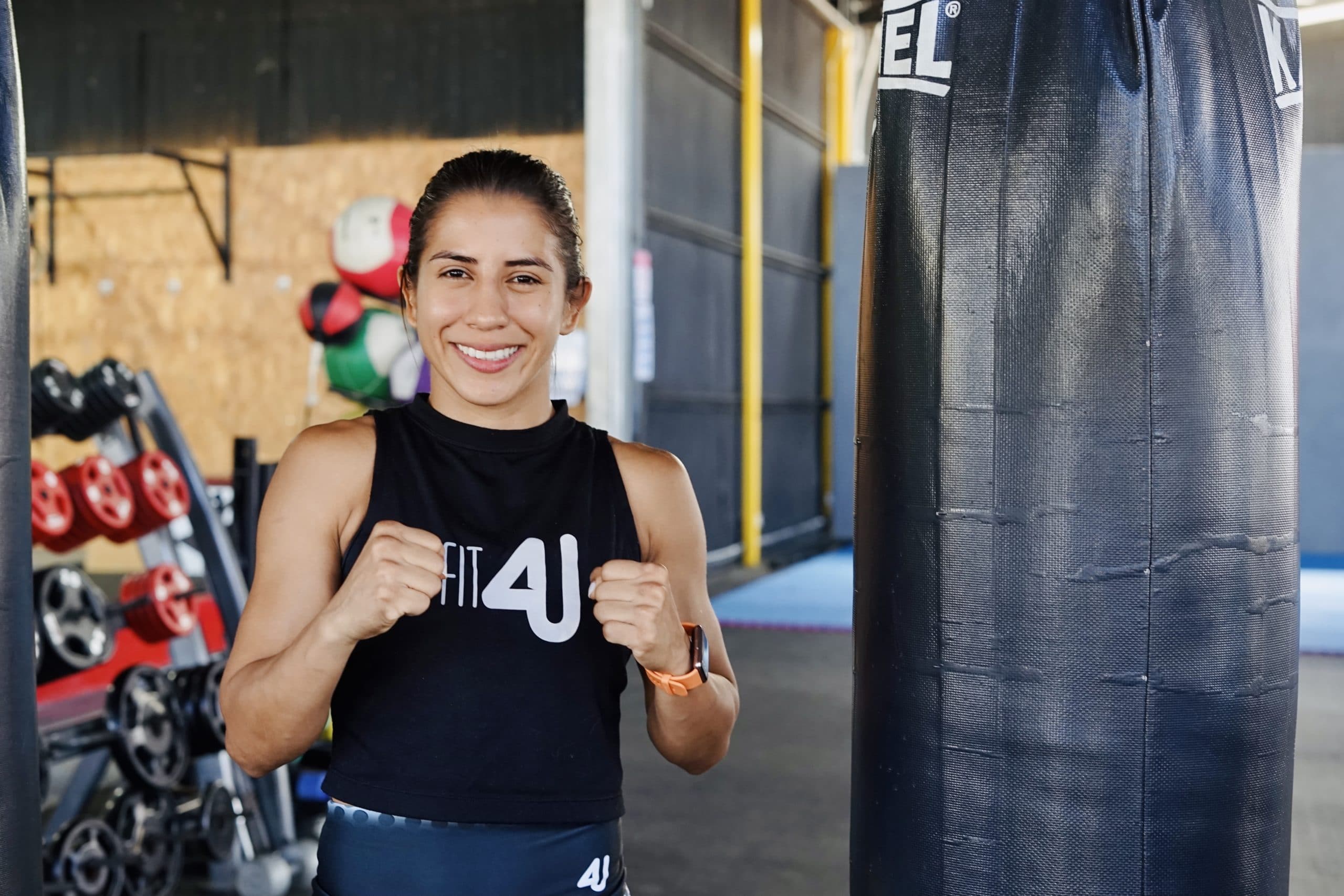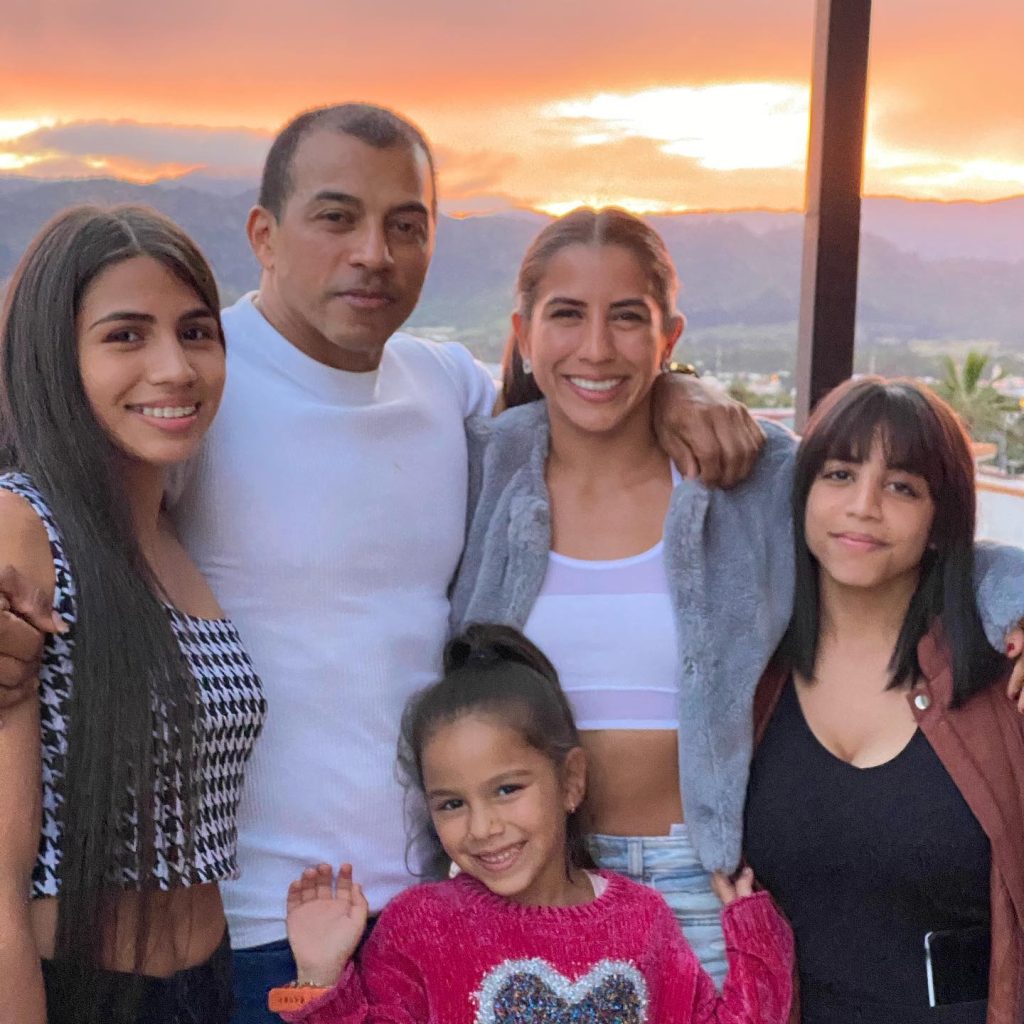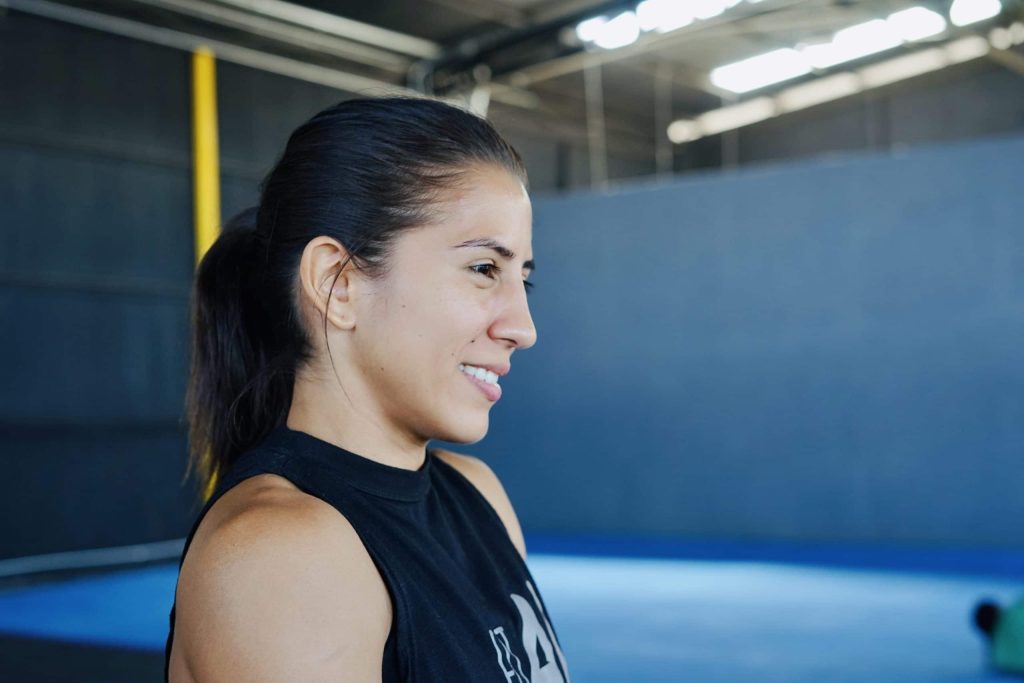24 de febrero 2021

The Return of the Military

PUBLICIDAD 1M
PUBLICIDAD 4D
PUBLICIDAD 5D
The boxer spoke about her Nicaraguan roots and Costa Rican nationality, as well as her most recent achievement: retaining the 105-pound title

The boxer spoke about her Nicaraguan roots and Costa Rican nationality
The world boxing champion Yokasta Valle is from Matagalpa, Nicaragua; her father and mother are from Ciudad Dario. She was born on August 28, 1992, in the same department. At seven she emigrated with her family to Costa Rica, where she, her parents and four sisters have lived ever since.
The boxer called by some “the people’s champion,” is the 105-pound world boxing champion of the International Boxing Federation (IBF). She retained the title by unanimous decision on January 21st against her Japanese rival Sana Hazuki.
Her world achievements began in 2016 when she was the first to win the women’s Atomweight title (102 pounds) also from the IBF.
Afterwards, in 2017 Yokasta Valle fought for the World Boxing Organization (WBO) junior featherweight title and in 2018 the World Boxing Council (WBC) women’s light flyweight title. It was until 2019 that she obtained the IBF women’s minimum weight title.
This year she prepares for her next fights, completes her last year of studies as a Physical Education teacher, and prepares self-defense classes for women and girls.
Yokasta Valle spoke with Confidencial about her development in this discipline, her most recent fight, about how her binational family, and her commitment against gender violence.

Yokasta Valle trains and gives individualized classes at a sports complex in the Santa Ana, San Jose, Costa Rica. // Photo: Cindy Regidor
In 2016 you became the first world boxing champion, at 102 pounds, atomweight of the International Boxing Federation, how has your life changed since then?
There have been many ups-and-downs, efforts, struggle, discipline…so one says: “It seems far away, to get to be something.” In 2016, I was world champion, but nobody noticed, nobody knew who Yokasta was.
My promoter used to say: “Come on, Yoka, you have to give extraordinary results, so people notice you.” We went to Japan, I went up two categories and fought with a boxer who was four times world champion. I lost, I cried a lot, but that is part of life.
Then I had another chance in Germany, with Tina Rupprecht, already in a lower category than me, and they stole the fight from us. Still, no one saw the fight.
I trusted my team, which is not only my team, but it is also my family. There is a “Dancing with the Stars” (dancing contest) here and they said to me: “Yoka, do you want to participate in this? And I said: “I am not a dancer.” They invited me to the program, anyway, it is something that people see a lot.
It was a show. I participated. The people knew me as the dancer of “Dancing.” But I wanted them to see me as a boxer, because when the program ends, I stop dancing, I keep boxing.
My promoter came up with the idea of fighting during the program. I fought on a Saturday and on Sunday I had to go to the gala to dance. And, finally, people saw me. For the first time they saw me fight. Just what I wanted, the objective. A large part of the audience began to know me, before they didn’t know I was a world champion.
Why do you think it took a lot for you to be recognized as a boxer and, also, that you were a world champion here in Costa Rica?
We tried. But I do not know if it is the culture of boxing, where it is not so common with women. That is what we have tried to change. Mario (my manager) used to say: ‘Yoka, if they see you fight, people are going to fall in love with you. I just want them to see you fight,’ and so it happened, they saw me fight.
A lot of people saw me. I needed an extraordinary fight so that all of Costa Rica, and the entire world, would realize that there was a world champion, a boxer. And that finally happened when we went to Spain.
I prepared very well. Almost two years waiting for that fight, which was mandatory, until they accepted it and I won. That was the extraordinary result needed so that I would become known as a champion.
Do you already feel like a realized athlete?
Realized enough, but not in the financial aspect, because if you compare (the difference) between what a man and a woman earn it is abysmal. But I remain motivated that this can change.

With her father, sisters, and niece. Photo: Taken from Yokasta Valle’s Facebook.
You have already told me a little about your boxing family. Tell us now of your family, your origins, your history as an immigrant from a very young age, you were seven years old when you migrated…
Virtually all my family is Nicaraguan. My mother, my father, my grandparents, my uncles, almost most of them are there in Nicaragua. I love to go, I go every year.
I was born in Nicaragua and have been here in Costa Rica since I was very young.
I learned everything despite not living in Nicaragua: the culture, the food. I cook. I make ‘Indio Viejo,’ I love typical foods. In itself, it is a part with which I identify a lot.
I have many uncles who live here in Costa Rica, who have emigrated and are doing well. And, obviously my mother and my father live here since I was little and all my sisters. My older sister was also born in Nicaragua, and the other three were born here in Costa Rica.
Your family is precisely one of thousands of Nicaraguan and Costa Rican binational families. How does your family live that reality? Has it been a good thing or a bad thing?
At one time, discrimination. Because they would say: “Ah, a Nicaraguan,” but it has changed in Costa Rica. I feel it has changed a lot, because of the contribution we give with our work, humility. We contribute something positive rather than negative… there will always be negative people everywhere.
Every Nicaraguan who comes here does so to work. My parents came to work here and that is good.
In Nicaragua, one of the most popular films made in the country is called “La Yuma.” The movie is about a young female boxer who lives in Managua. At first, she does not want to leave the country, but in the end she leaves. Do you think that your success had to do with you moving from Nicaragua to Costa Rica, where the financial possibilities are better in a more stable country?
For someone who is a female boxer, it is going to be difficult in any country. Yes, there are obviously more opportunities. There is the financial side that has helped me at the Olympic level, a lot of help in national games.
Here there is a lot of support for sports, there is a big budget… I always look for new frontiers. I want to box in the (United) States, because that’s where boxing moves the most, the economic part. We always seek to make history, to make the difference.
You are also studying a university degree, along with your career as an athlete. What is it and why did you decide to do it?
My mother was always after me since I started boxing. ‘Yoka, you have to study a university degree. It is important because you should always have a plan B,’ because an athlete’s career is short.
It was difficult, because having a university degree is not that easy. You must work. I was able to do it because of the sport, which gave me scholarships. Afterwards, my promotor Mario Vega helped me. I am still studying Physical Education, here at the UACA (Autonomous University of Central America). I love my career. I enjoy it a lot and I am almost finished. I am close to graduation.
Tell us a bit of your most recent win. The fight where you retained your 105-pound world champion title.
I am happy. This is my second world title defense. I fought against the number one in the ranking of the International Boxing Federation. I had to fight with her, no matter what, otherwise I would lose the title without throwing a single punch.
It was a tough fight. She has a messy style, but in the end I did my job and took the victory.

From Nicaraguan cuisine, Yokasta Valle cooks “Indio Viejo,” but she also loves “vaho” that her aunt prepares for her in Nicaragua. Photo: Cindy Regidor
I saw that there were many congratulations from Costa Ricans. Were there also congratulations from Nicaragua, form the people, from the government?
There were, yes. Many Nicaraguans who are here or in Nicaragua told me: “I am from Nicaragua. I support you a lot and didn’t know of your Nicaraguan origins.”
Sometimes they argue, Nicaraguans with Costa Ricans. “She is from Nicaragua.” “No, she is Costa Rican.” And I say: Don’t fight each other, in the end I am representing Central America, Latin America. Do not fight. I am the one who fights.
You recently announced that you will give self-defense instructions to women. Where did that idea come from?
In all my fights I have always tried to give a positive message. Not only that it is possible, that we are strong, brave, but also about the situation we are experiencing, of femicides. I did it in my previous fights, when I wore the name Eva, who is a girl that was killed. That affected us a lot.
So that they not only feel strong physically, but also mentally. So that they say I am going to defend myself too. I am not going to let myself be mistreated and not be silent. If you suffer violence from the husband, boyfriend, which is very common, do not be silent.
You were thirteen when you first stepped into a ring. What would you say to girls of that age who want to pursue a career like yours?
I would them that they are capable, to do everything they aim for. There will always be negative comments. Ignore them. Instead, surround yourself with positive people.
To have discipline and perseverance. It is not as if one day yes, the other day no. You need to be consistent in pursuing your dreams every day. You always must wake up with a purpose.
It wasn’t easy to be the champion I am now, it does not mean I had no falls. I had many downfalls. I cried, I literally bled. That is part of life, part of being successful.
Archivado como:
PUBLICIDAD 3M
Periodista nicaragüense desde 2007, con experiencia en prensa escrita, televisión y medios digitales. Tiene una especialización en producción audiovisual y una maestría en Medios de Comunicación, Estudios de Paz y Conflicto de la Universidad para la Paz de las Naciones Unidas. Fundadora y editora de Nicas Migrantes, proyecto por el cual ganó el Impact Award 2022 del Departamento de Estado de EE. UU. Ha realizado coberturas in situ en Los Ángeles (Estados Unidos), México, El Salvador, Guatemala, Nicaragua y Costa Rica. También ha colaborado con France 24, The Guardian, Al Jazeera, BBC World Service. Ha sido finalista y ganadora de varios premios nacionales e internacionales, entre ellos el Premio Latinoamericano de Periodismo de Investigación Javier Valdez, del Instituto Prensa y Sociedad (IPYS), 2022.
PUBLICIDAD 3D